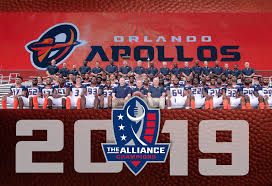As we look ahead, the landscape of the World Cup is set to evolve further, influenced by technological advancements, shifting societal norms, and changing fan expectations.
Innovations Shaping the Game
Technology continues to reshape the way we experience football, and the World Cup is no exception. The introduction of VAR has already dramatically altered the dynamics of the game N666, ensuring fairer outcomes.
Future innovations may include augmented reality experiences that allow fans to interact with the game in unprecedented ways—whether through immersive viewing experiences or enhanced interaction with player statistics and performances.
The potential integration of AI-driven analytics can offer deeper insights into team strategies and player performance, making the tournament more engaging and informative for fans. Enhanced broadcasting capabilities may render the viewing experience truly immersive, bridging the gap between live attendance and home viewing.
Expanding Opportunities for Inclusion
As discussions about representation and equity gain momentum, the future of the World Cup could see increased efforts toward inclusivity across genders, races, and cultures. FIFA’s initiatives aimed at promoting women’s football and diversifying leadership roles within the sport indicate a promising shift toward greater equality.
Additionally, integrating grassroots programs that encourage youth participation from marginalized communities can make strides in nurturing future talents. Hosting tournaments in emerging football markets presents opportunities for cultural exchange and elevates the global presence of the sport.
Sustainability and Ethical Considerations
In response to growing concerns around environmental sustainability, future World Cups may adopt greener practices, from stadium construction to waste management. The emphasis on eco-friendly initiatives aligns with global movements focused on climate change and responsible consumption.
Furthermore, the ethical implications of hosting tournaments in countries with questionable human rights records must not be overlooked. An ongoing dialogue about accountability and transparency will be crucial in shaping the integrity of the tournament while ensuring it remains a celebration of unity and sportsmanship.
Reflecting on the future of the World Cup ignites excitement for possibilities yet to come, reinforcing the notion that this cherished event will continue to inspire, unite, and entertain generations.
Conclusion
The World Cup stands as a vivid testament to the extraordinary influence of football on a global scale. It encapsulates the beauty of human connection through sport, transcending borders and uniting diverse cultures in a shared celebration of passion, skill, and competition.
From its rich historical roots to its current cultural significance, and the unforgettable experiences it creates for fans, the World Cup remains an exhilarating spectacle that captures the hearts of millions. As we anticipate future iterations, the commitment to inclusivity, innovation, and sustainability will serve as guiding principles, ensuring that this magnificent event continues to inspire generations to come.
The excitement of the World Cup is not relegated to the mere act of scoring goals; it lies in the memories forged, the connections made, and the stories shared. Each tournament reaffirms that, ultimately, football is about bringing people together—one match, one moment, and one shared passion at a time.





